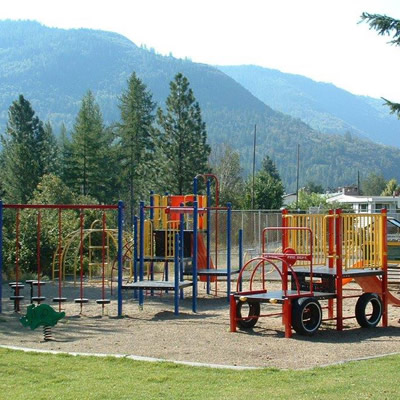Rossland, B.C. now skinnier thanks to energy diet
The preliminary results are in and the biggest loser is Rossland

—
Photo courtesy Fortisbc website.
After being on an energy diet for close to half a year, the residents of Rossland have reduced their annual energy use substantially—more than 2,220 gigajoules (GJ) of natural gas and 1,478,000 kilowatt hours (kWh) of electricity, all through making energy-efficient renovations to existing homes and small businesses.
"We were excited to see the level of participation and the fact the residents of Rossland were going to see some real, tangible and ongoing energy savings," said Michael Mulcahy, executive vice-president of human resources, customer and corporate services for FortisBC.
The Rossland Energy Diet took shape last year when the community's Sustainability Commission identified that the average Rossland home, comprised of many early twentieth century heritage homes, consumed 36 per cent more electricity than other homes across the province. They approached FortisBC, their electricity and natural gas provider, to see if help was available.
What developed was the first ever community-level energy diet, done in partnership with the City of Rossland, the Sustainability Commission Energy Task Force, Nelson and District Credit Union, Columbia Basin Trust and FortisBC.
Program participants received a free initial energy assessment, help connecting with local qualified contractors to do the retrofit work and guidance in capitalizing on the LiveSmart BC Efficiency Incentive Program and the former Federal ecoENERGY incentive programs.
While the original program target was to reach 100 homes, more than double signed up for an energy assessment (257 in total). This represents 22 per cent of single-family households in Rossland, and well above the LiveSmart BC average community participation rate of 1 to 2 per cent.
The energy-efficient measures that participants completed will help to reduce greenhouse gas emissions by up to 338 tonnes annually and have injected an estimated $1.5 million into the local economy. These preliminary results are for 135 of the 257 participating homes, so even more losses are expected. Remaining participants have until March 31, 2013 to renovate and apply for grants through LiveSmart BC.
"I think the numbers speak for themselves," said Rossland mayor Greg Granstrom. "To save more than a million kilowatts in electricity halfway through and have more than $1.5 million invested in the community is a real win/win."
Participants are also pleased with the results.
"The energy diet gave us the motivation we needed to upgrade our 1930s home," said Tanis Shippy, Rossland resident and program participant.
As part of the program, her household added insulation to the attic and basement, replaced windows and more. Their initial EnerGuide rating (a standard measure of a home's energy performance) was 31 and is now rated at 77 of a possible 100. This is in the top 5 percentile for homes of that age and exceeds the current building code standard for a new house. Their efforts have earned them the full $5,000 rebate from the federal incentive program and they expect a similar amount from LiveSmart BC.
"Our home now maintains an even heat—we didn't even need to turn on our furnace in the cold, rainy spring weather," said Shippy. "This was really positive experience, it created friendly competition and conversation around energy conservation."
"We're very pleased by the results of this community driven initiative," said Mulcahy. "We look forward to working with other communities who are considering a similar approach to saving energy."





Comments